Marc Overmars has built the best Ajax team since 1995 - but before it comes to an end he knows they must win
Overmars’ Ajax team won one Champions League and Intercontinental Cup, and lost the Champions League final the following year, before they finally disbanded in 1996 and 1997
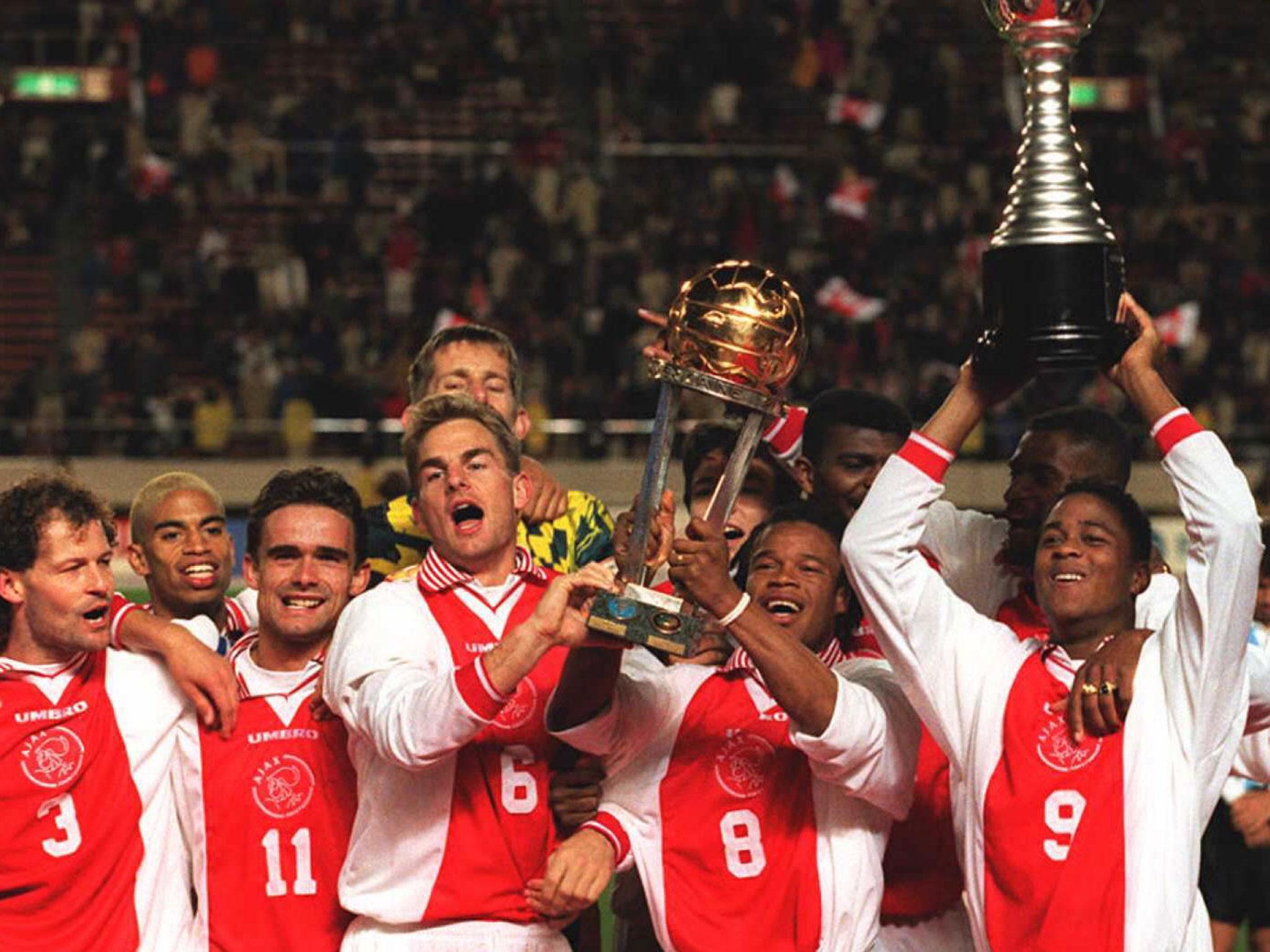
Your support helps us to tell the story
From reproductive rights to climate change to Big Tech, The Independent is on the ground when the story is developing. Whether it's investigating the financials of Elon Musk's pro-Trump PAC or producing our latest documentary, 'The A Word', which shines a light on the American women fighting for reproductive rights, we know how important it is to parse out the facts from the messaging.
At such a critical moment in US history, we need reporters on the ground. Your donation allows us to keep sending journalists to speak to both sides of the story.
The Independent is trusted by Americans across the entire political spectrum. And unlike many other quality news outlets, we choose not to lock Americans out of our reporting and analysis with paywalls. We believe quality journalism should be available to everyone, paid for by those who can afford it.
Your support makes all the difference.When Marc Overmars returned to Ajax in 2012 he had one goal. He had won the Champions League with Ajax in 1995, but since then the giant club had been dwarfed in the new financial landscape of the game. Overmars was the new technical director and he was desperate to drag his old team back into a European final.
On Wednesday night in Stockholm, Overmars’ ambition will be fulfilled. Ajax will play Manchester United for the Europa League. It is their first European final since they lost the Champions League to Juventus in 1996 in Rome, a game Overmars missed with injury. But for Overmars and the rest of the veterans of that great mid-1990s side, guiding this team back to the top is what it is all about.
“It makes me proud,” Overmars tells The Independent in his office at De Toekmost. “When I started here I wanted to do the same as I did as a player, and reach a final. Now to achieve it this year is fantastic for us.”
Football history does not repeat itself, but it often rhymes, and it does so very clearly in the case of Ajax then and now. The 1995 team, which Overmars played in, was a young side, mostly but not exclusively local, playing adventurous pressing football inspired by the values of Johan Cruyff. All of that is true now, and not by chance either. This team has been drawn up on the lines of the old one and it shows.
22 years on, Overmars is still struck by how his band of “schoolboys” upset the odds and beat reigning champions AC Milan 1-0 in Vienna. He was 22, Edgar Davids was 22, Michael Reiziger was 22, Patrick Kluivert was 18. But they took on the Milan of Franco Baresi, Alessandro Costacurta and the rest and won. This Ajax team is just as young now. And it gives him confidence that they can beat United.
“That is why I feel the comparison to 1995,” Overmars says. “Because we were also schoolboys. We arrived at the final in our tracksuits, we came in and we had our lunch, which was spaghetti, a little soup, and apple pie. And all those [other] clubs who already had labs and everything.” But it was enough.
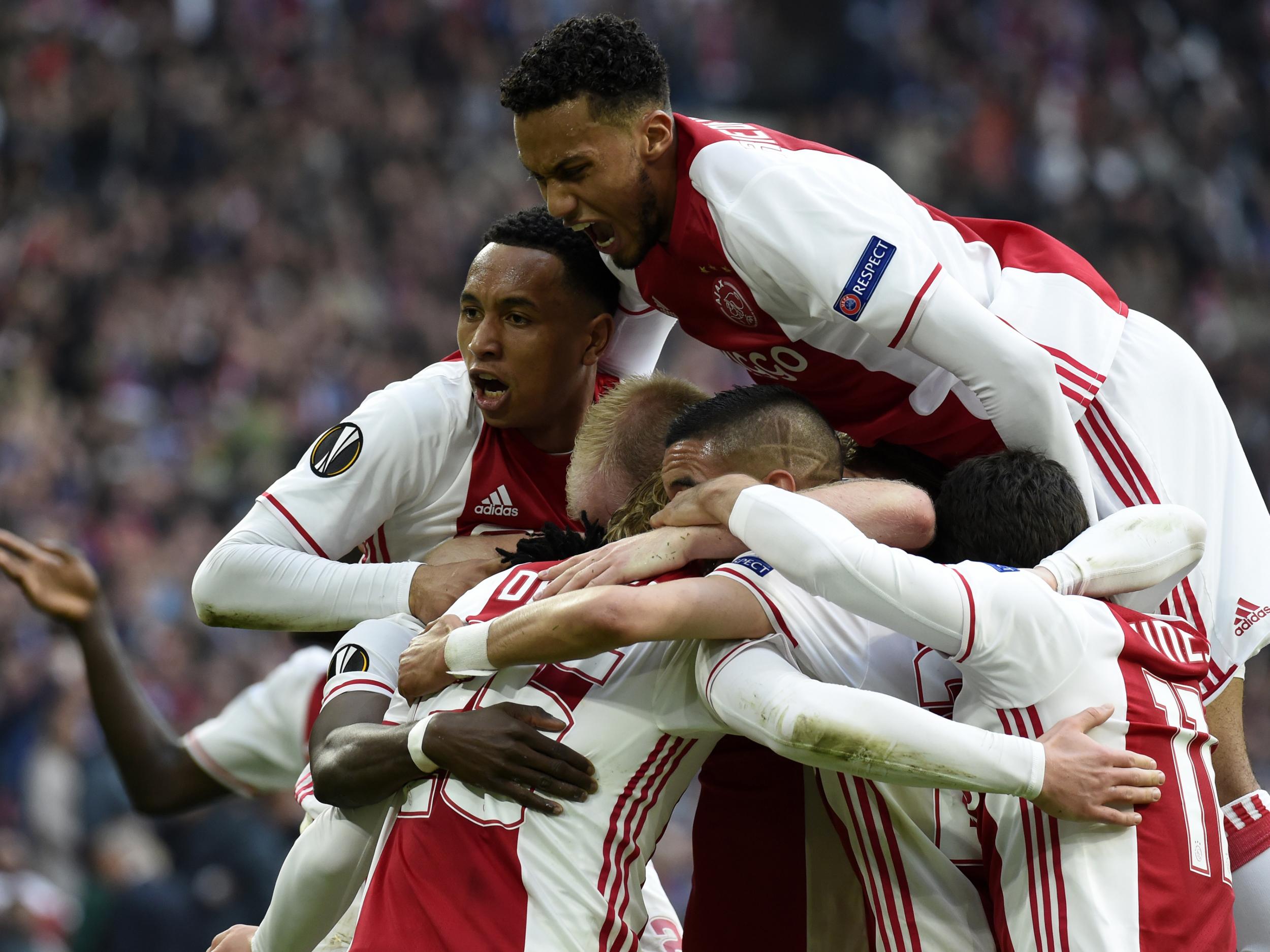
The current team is even younger. Matthijs de Ligt is 17, Justin Kluivert is 18, Kasper Dolberg is 19. But Overmars knows that youngsters can flourish if they are good enough. “If you see the training, we have some schoolboys, real schoolboys,” Overmars says. “But they can play fantastic football. I remember Andres Iniesta playing with us at Barcelona. He was also a schoolboy. But in the end, it is all about are you smart enough? Are you smarter than who you play against?”
Overmars’ job is to go and find players who are smart enough to fit into Peter Bosz’s team. Not that he only signs identikit little passers. One of his great triumphs has been Davinson Sanchez, the imposing 20-year-old centre-back signed last summer from Atletico Nacional in Colombia. He was a risk but he has fitted in perfectly and will eventually make Ajax a huge profit on their €5million investment. “You don’t win games only with good football, we have to find a mix,” Overmars says. “I see how Sanchez fits into this team, what a big influence he has, but he is maybe not a typical Ajax player.”
Or take Hakim Ziyech, one of the great triumphs of Overmars’ tenure. The Moroccan midfielder had impressed first with Heerenveen then with Twente, so Ajax spent €11m on him last summer. Ziyech had been playing out on the right at Twente but Ajax thought that they could turn him into a dominant midfielder if they could just make him work harder and run more without the ball. “If you want to be a midfielder in our team,” Bosz said, “you have to adapt to our way of playing.”
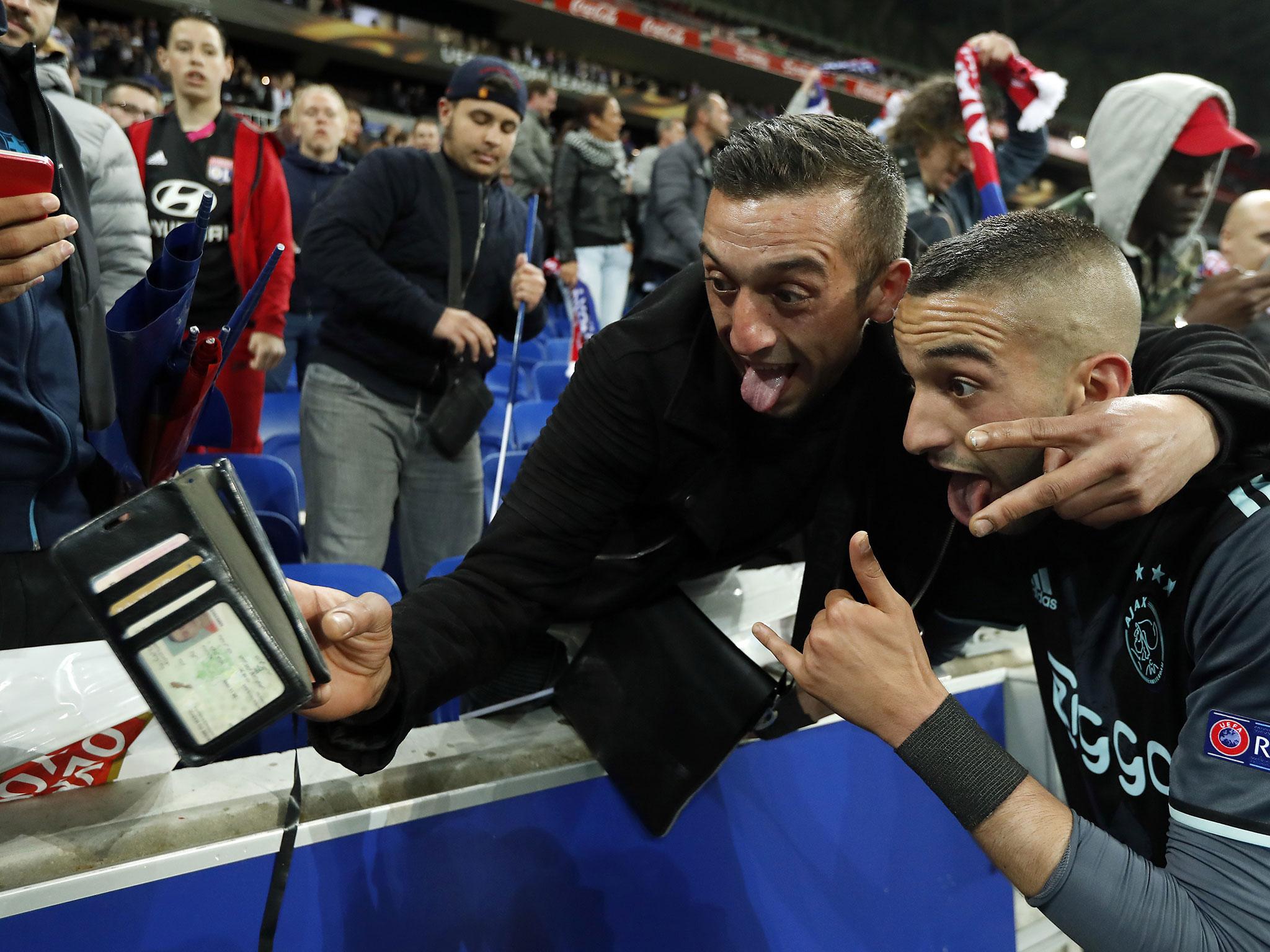
Overmars is delighted with how Ziyech has done that, which is a vindication for his decision to sign him. “At Twente, Hakim was running 7km in a game,” Overmars explains. “Here, is running almost 12km. He had to adapt, he had to fight more in the game. At the beginning, he could not play the full 90 minutes. Now he is doing fantastic, because he has the strength now and the power. The last finish, he has the condition to do it.” When Ajax beat Schalke in the quarter-finals, Ziyech was still running the game in extra-time, when Ajax scored twice to make it through. “He has had a big growth in his development.”
The result is a team which mixes home-grown products with clever imports, just like the 1995 team did. “It is quite comparable,” Overmars says. “Of course I was bought myself from Willem II. On the right side we had Finidi George, and up front we had Jari Litmanen. Now we also have three ‘foreigners’ up front: Dolberg who came here at 17, Amin Younes and Bertrand Traore.”
But the real thread that links that team and this one is the football itself. Peter Bosz is a purist whose football is proudly adherent to the principles of Johann Cruyff. Ajax pass the ball, press hard, and have their back four as high up the pitch as they can get away with. The people change but the values stay the same.
“Exactly the same, exactly the same,” Overmars enthuses. “Here it is not allowed to bring in a coach with different ideas.”
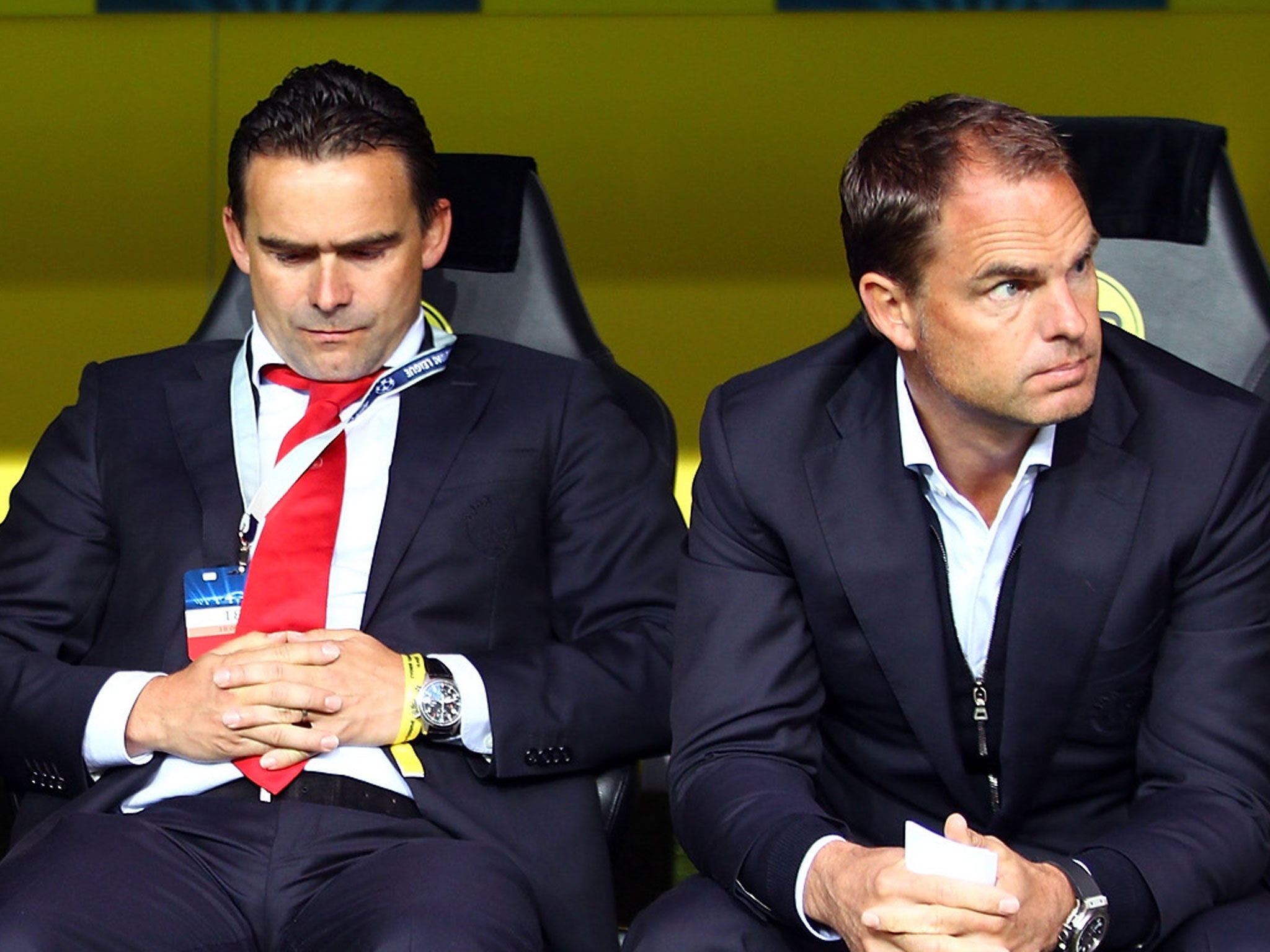
So what exactly does this mean in practice? “We take a lot of risk from behind, we try to play up front most of the time. Most teams say ‘we lock it down in defence, then we will see.’ We know in football most coaches think ‘I have to secure the back, when that’s good, we can move on.’” Like Jose Mourinho? “Yes.”
It is a risk, but it is working. Ajax finished a strong second in Eredivisie, just one point behind Feyenoord. And they have played some brilliant football in Europe, shredding Lyon and Schalke on their way to the final in Stockholm this week.
The only question left is how long this team can stay together. Overmars points that teams in the Championship in England have a bigger budget than he does and that his players could earn “10 times more” elsewhere.
Of course Ajax accept that their players will eventually want to do that and they are proud of the ones that do. In the brochure that Overmars shows to potential recruits there is a picture of Christian Eriksen, who he sees as the perfect example of a player succeeding here and then leaving.
“Christian played for four years in the first team,” Overmars remembered. “Then he came to me and said he was looking forward to seeing another league. We shook hands and we came to an agreement with Spurs in 30 minutes. Because he showed us commitment for four years, and he won the title three times. Then you can go.”
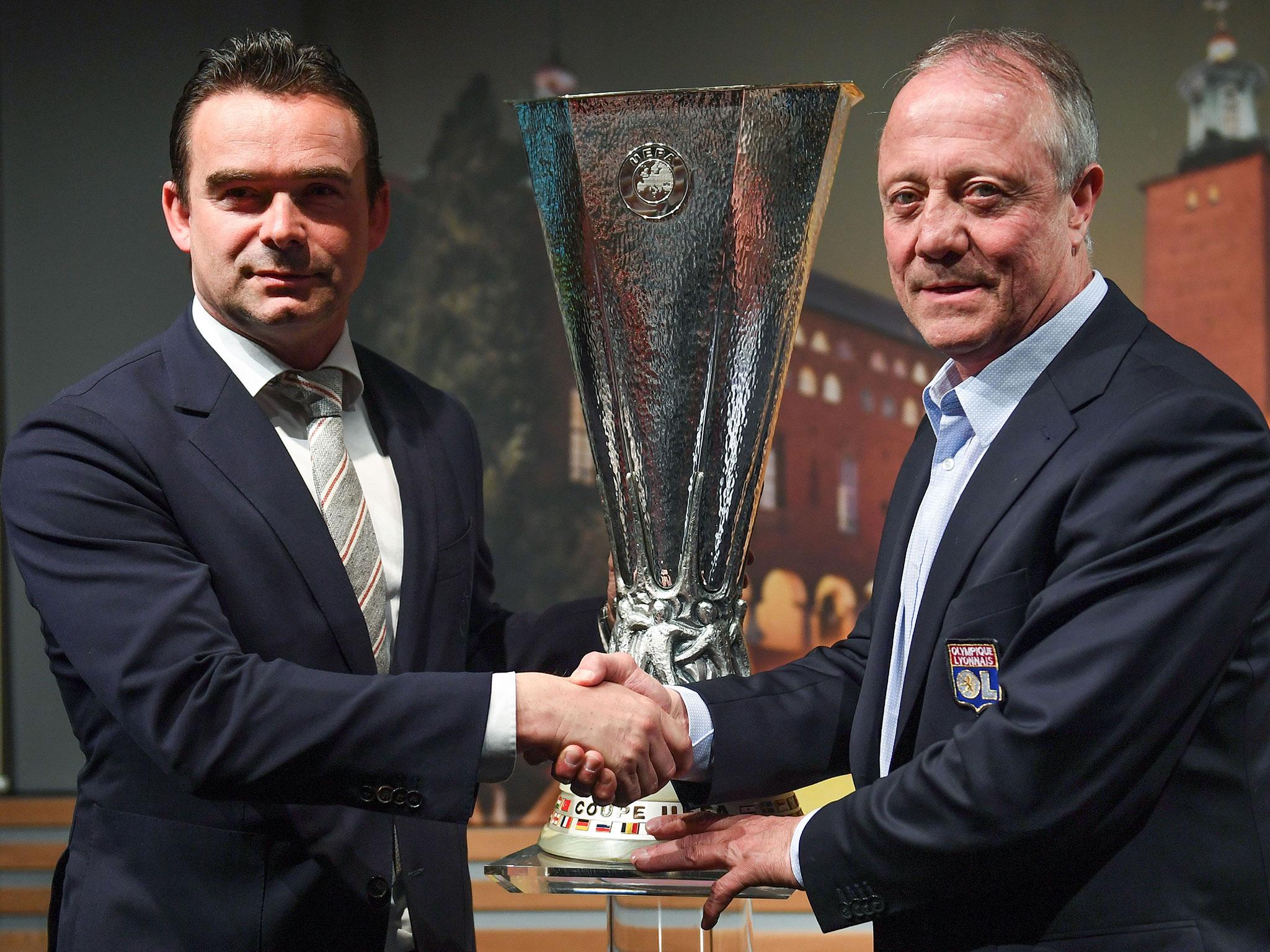
That is why, of the current team, Davy Klaassen, 24 years old and in his fourth season as a regular, is likeliest to go this summer. But Overmars is determined to keep hold of the younger players for a few more years.
“The team is so focused on winning prizes,” Overmars says. “They are not thinking about their careers. The goalkeeper Andre Onana said to me ‘this team has to stay together’. When I was playing, after a few years, I said ‘I want to move on’. They will move on, but in two years.”
Overmars’ Ajax team won one Champions League and Intercontinental Cup, and lost the Champions League final the following year, before they finally disbanded in 1996 and 1997, the year he left for Arsenal. That is the pathway that is set up for these new young Ajax players. But first they have to win.
Join our commenting forum
Join thought-provoking conversations, follow other Independent readers and see their replies
Comments